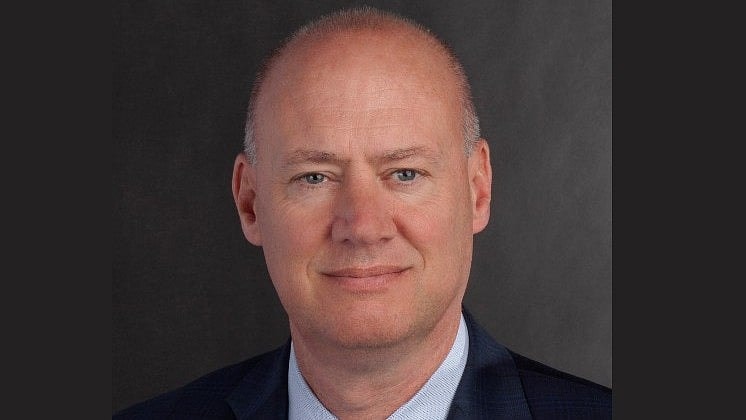Leadership
(US & Canada) VIDEO | Have Solid and Beneficial Relationships With the CFO — US Nuclear Regulatory Commission CIO
Written by: CDO Magazine Bureau
Updated 7:06 PM UTC, January 11, 2024

David Nelson, Chief Information and Data Officer at the U.S. Nuclear Regulatory Commission, speaks with Bill Sullivan, VP and General Manager of US Federal, in a video interview about the importance of having a holistic view of problems and knowing the available solutions, forming strategic IT roadmaps to prioritize investments, the role of CFO Act agency, and the advantages of working at the agency.
Nelson has learned from his private sector experience that it is critical to have a holistic view of organizational challenges when working with smaller businesses. He adds that one must know the tools available to solve those issues, as many times the companies are struggling just to stay afloat.
Consequently, it is vital to build relationships with legal, financial, and marketing personnel to understand the outcomes they are looking for, says Nelson. Further, he urges organizations to understand the customer experience when putting out products and stories to the public.
Next, Nelson mentions that federal program managers are better trained today than when he first joined. He has experienced that the government has many resources and programs and requires building relationships to apply them and benefit everyone. He also insists that the relationship with the CFO should be solid and beneficial. Additionally, it is fundamental to know as much as possible about the Chief Acquisition Officer and how the agency is structured.
Moving forward, Nelson recommends agencies put together a strategic IT roadmap to prioritize investments and goals for the next 5-8 years. He also suggests forming an IT investment body to review the budget formulation process and ensure meeting the mission. He asserts that conversations are necessary to understand the mission and what the agency is trying to accomplish.
Highlighting the CFO Act, Nelson maintains that his agency is now small after separating from the Department of Energy during the seventies. Its sole function is to guarantee the safety and security of civilian nuclear material use. He notes that the agency monitors nuclear reactors, and takes care of medical treatments, commercial construction, measuring tools, and other smaller licensees. The agency ensures that the materials are being used in an environmentally safe way and ensures that spent materials are stored securely. Overall, the organization aims to watch after the safety and security of Americans, he reckons.
Thereafter, Nelson emphasizes the focus and efficiency of his role and the mission of his workplace. The organization prioritizes an organized and intentional approach by managing the portfolio with limited resources. Furthermore, due to the intimate size of his team, the members communicate frequently and strive to tackle any challenge that arises. This allows for a focused work environment, as they know what they are trying to achieve.
Delving further, Nelson discusses the differences between the small, focused agency he works for and larger ones like Healthcare and Human Services (HHS). He knows that pursuing a mission in a smaller organization demands careful management of resources.
It also means that the mission team has regular and constant conversations so that everyone is aware of the challenges, says Nelson. He affirms that this environment enables the team to be agile when faced with rapidly changing situations and to invest resources in the right direction for the desired outcome.
In conclusion, Nelson highlights how this focus makes for a better working environment, with minimal ambiguity and where everyone knows what needs to be done. According to him, the advantages of working at such an agency with a focused mission are clear with greater clarity, improved efficiency, and better communication.
CDO Magazine appreciates David Nelson for sharing his insights with our global community.
See more from David Nelson


